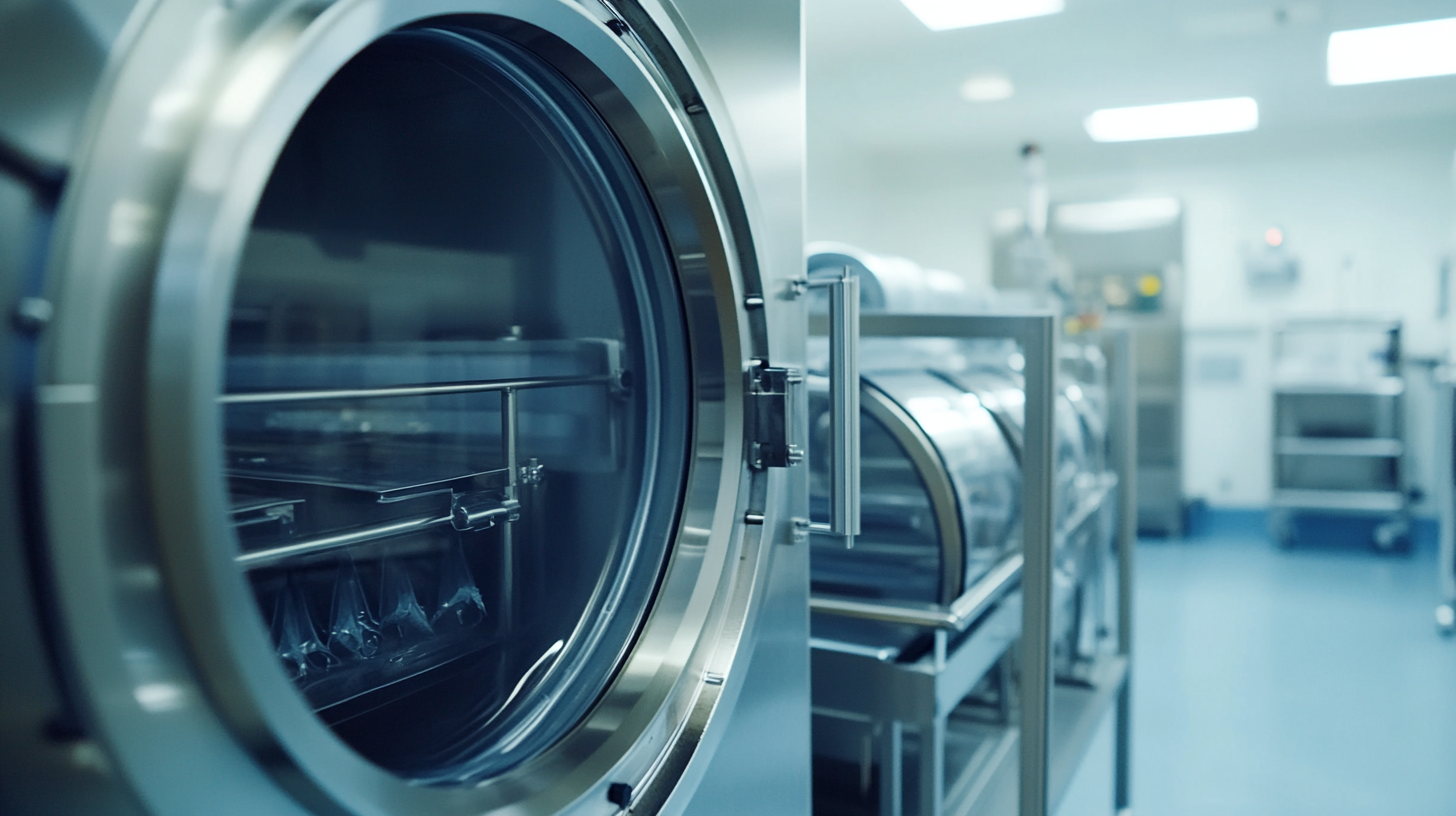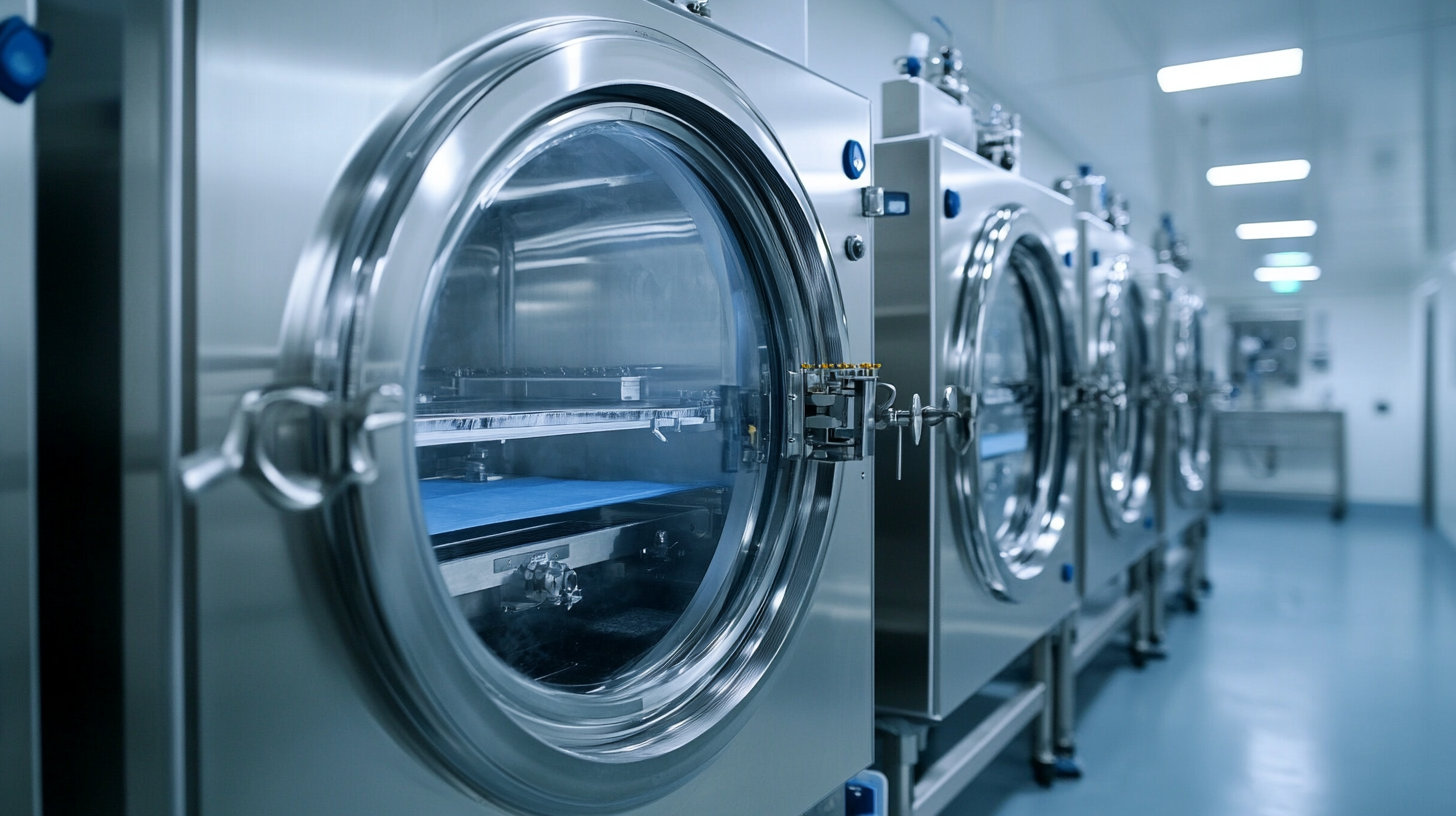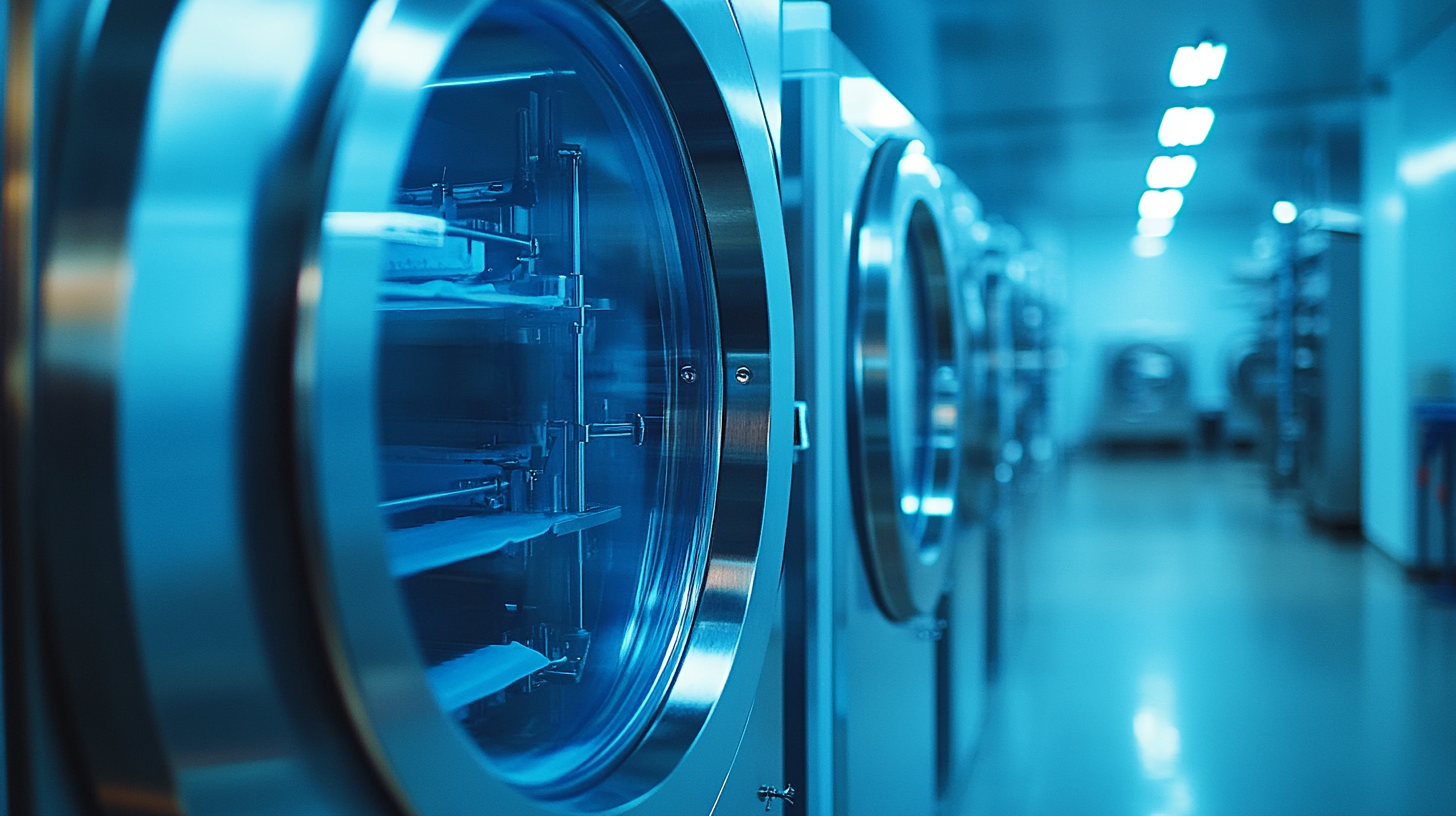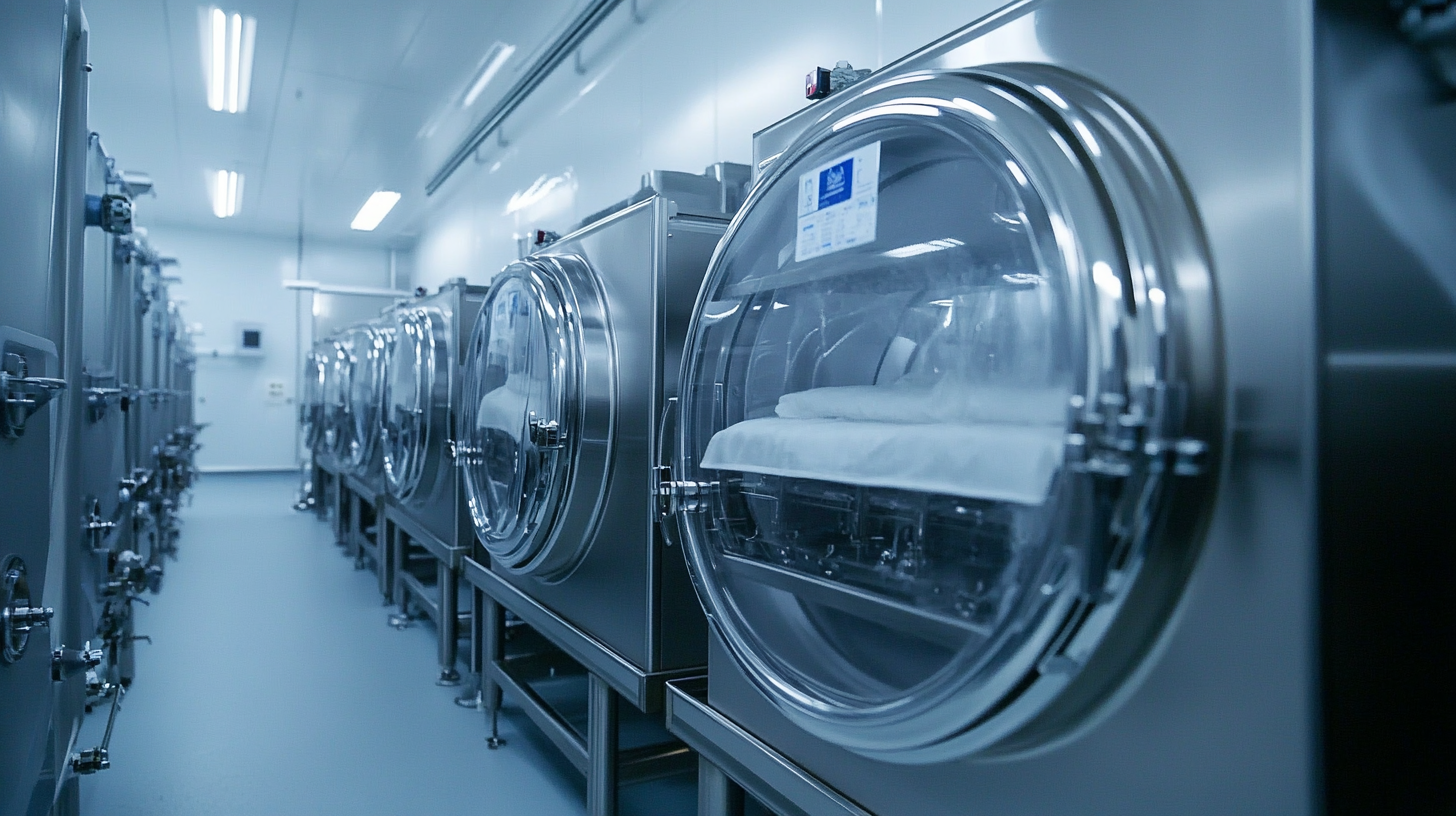- Home
- Products
- Services
- Product concept development
- Engineering
- Design for manufacturability
- Regulatory services
Read more - Material selection and formulation
- Prototyping
- Testing and validation
Read more - Production process development
- Custom tooling
- Manufacturing
- Finishing operations
- Assembly
- Packaging
- Private labeling
- Sterilization
Read more
- Resources
- Careers
- Search
Understanding the Unique Features and Applications of Autoclave Sterilization Solutions in Diverse Industries
In today's rapidly evolving industrial landscape, ensuring the highest standards of hygiene and safety is paramount. One method that stands out in achieving sterilization is Autoclave Sterilization. This process, utilizing high-pressure steam, offers a reliable means of eliminating microorganisms from various materials and equipment. As industries like healthcare, pharmaceuticals, and food processing increasingly focus on compliance with stringent safety standards, understanding the unique features and applications of autoclave sterilization solutions becomes essential.
Autoclave sterilization is not only crucial for ensuring product safety but also plays a vital role in maintaining efficiency and operational integrity across multiple sectors. From surgical instruments in hospitals to laboratory glassware and biohazardous waste, the applications of this technology are vast and diverse. This blog will delve into the specifics of autoclave sterilization, exploring its mechanisms, advantages, and the diverse industries that rely on these solutions to uphold their commitment to quality and safety. Join us as we uncover the pivotal role autoclave sterilization plays in safeguarding public health and ensuring the longevity of products across various domains.

Key Characteristics of Autoclave Sterilization Technology
Autoclave sterilization technology is a cornerstone of infection control across multiple industries, particularly healthcare, pharmaceuticals, and food processing. One of its key characteristics is the application of steam under high pressure, which effectively eliminates a broad spectrum of microorganisms, including bacteria, viruses, and spores. According to a report by the World Health Organization (WHO), steam sterilization is the preferred method in healthcare settings, as it achieves a minimum of 121°C for at least 15 minutes, ensuring comprehensive microbial inactivation. Another defining feature of autoclave technology is its ability to maintain consistent sterilization conditions. This is crucial for ensuring that sensitive instruments conform to stringent safety standards. The International Organization for Standardization (ISO) states that properly calibrated autoclaves can ensure the reliability of sterilization cycles, reducing the incidence of healthcare-associated infections. Moreover, advancements in autoclave design, such as automatic monitoring and data logging systems, enhance operational efficiency and traceability, further reinforcing compliance with regulations from bodies like the U.S. Food and Drug Administration (FDA). In addition to healthcare, the pharmaceutical industry relies heavily on autoclave systems to sterilize equipment and materials used in drug manufacturing. A report from the Global Market Insights indicates that the pharmaceutical sterilization equipment market is expected to reach $6 billion by 2027, largely driven by the stringent sterilization requirements mandated by regulations such as Good Manufacturing Practices (GMP). This emphasizes the significance of autoclave technology in maintaining product integrity and safety in a sector where contamination risks can carry severe consequences.

The Role of Autoclaves in Healthcare: Ensuring Patient Safety
Autoclave sterilization solutions play a pivotal role in the healthcare industry, where patient safety is of utmost importance. Utilizing high-pressure steam to eliminate bacteria, viruses, and spores, autoclaves ensure that surgical instruments and medical devices are thoroughly sterilized before they are used. This process not only protects patients from potential infections but also upholds the overall integrity of healthcare facilities. With the rising incidence of healthcare-associated infections (HAIs), the demand for reliable sterilization methods has surged, highlighting the critical role of autoclaves in modern medical practice.
In addition to traditional uses in hospitals, autoclaves are increasingly being adopted in various healthcare settings, such as dental clinics and veterinary offices, where infection control is equally essential. The versatility of autoclave sterilization solutions allows for the effective processing of a wide range of materials, from reusable instruments to labware and textiles. As the sterilization equipment market continues to expand, driven by innovations and increasing awareness of hygiene practices, the importance of autoclaves in ensuring patient safety and compliance with regulatory standards cannot be overstated.
As the healthcare sector evolves, so does the technology surrounding autoclaves, incorporating advanced features like automated cycles and data logging capabilities. These enhancements not only streamline the sterilization process but also provide healthcare professionals with invaluable documentation and verification of sterilization, reinforcing accountability and trust in the system. With patient safety at the forefront, autoclaves remain a cornerstone of effective infection control in the healthcare industry.

Industrial Applications of Autoclave Sterilization in Food Processing
Autoclave sterilization plays a critical role in the food processing industry, ensuring that products are safe for consumption and free from harmful microorganisms. This method relies on high-pressure steam to achieve temperatures exceeding 121°C, effectively destroying bacteria, spores, and other pathogens. Recent studies highlight that employing autoclaving can significantly reduce microbial load while preserving the aroma profiles of spices, which are essential for maintaining the quality of food products. For instance, research demonstrated that autoclaving altered the aroma of certain spices less than γ-radiation, showcasing its gentle yet effective sterilization characteristics.
Moreover, the adoption of innovative sterilization systems, such as the newly launched SBM Essential Line sterilizers, enhances efficiency in food processing. These advanced units leverage a combination of vacuum-steam and steam-air mixture sterilization techniques, which not only standardize processes but also shorten delivery times for food manufacturers. According to industry reports, the increasing demand for convenience and safety in packaged foods has led to a surge in investments in advanced sterilization technologies, with projections indicating a robust growth rate of 5-7% in this sector over the next few years.
As the food industry continues to evolve, the importance of reliable sterilization solutions cannot be overstated. The integration of modern autoclave technologies aligns with regulatory standards and consumer expectations for food safety. By employing rigorous sterilization methods, food processors can enhance product quality, extend shelf life, and ultimately satisfy a growing market that prioritizes health and safety.

Innovative Autoclave Solutions for Pharmaceutical Manufacturing
In recent years, the pharmaceutical industry has witnessed significant advancements in autoclave sterilization solutions, particularly with the introduction of innovative technologies that enhance efficiency and reliability in manufacturing processes. One such breakthrough is the BioCapt® Single-Use AutoM Microbial Impactor, developed by Particle Measuring Systems in partnership with Pharma Integration. This cutting-edge device offers automated microbial air sampling that is specifically designed for robust and robotic environments predominant in pharmaceutical production. By streamlining the sampling process, the BioCapt AutoM significantly improves the accuracy and repeatability of microbial readings, ensuring that product quality and regulatory standards are consistently met.
Moreover, as pharmaceutical manufacturers increasingly focus on optimizing their operations, there has been a notable shift toward flexible and modular containment solutions. This trend is driven by the industry’s need to accommodate diverse product lines, smaller batch sizes, and rapid changeovers. As a result, autoclave solutions are evolving to support more versatile applications, thereby facilitating a more agile manufacturing environment. Thermo Fisher Scientific’s recent introduction of Thermo Scientific Heracell Incubators exemplifies this dedication to supporting fully automated labs, thereby enhancing workflow efficiency in cell therapy production.
The ongoing expansion of the global steam autoclaves market, predicted to grow at a CAGR of 9.9% through 2030, underscores the increasing importance of sterilization technologies in the pharmaceutical sector. As companies prioritize both innovation and sustainability, there is an emerging conversation around recycling materials used in biopharma manufacturing. Embracing these advancements not only drives operational excellence but also positions the industry toward a future that prioritizes both efficiency and environmental responsibility.
Environmental Impact and Sustainability of Autoclave Sterilization Practices
Autoclave sterilization is an essential process across various industries, particularly in healthcare, where it ensures the elimination of pathogenic microorganisms. However, the environmental impact of autoclave practices has gained increasing attention in light of sustainability efforts. Traditional sterilization methods often rely on single-use plastic devices (SUDs), which create significant waste. A recent report highlights that over 50% of surgical teams prefer these SUDs due to their convenience and sterility, inadvertently contributing to the plastic waste crisis within operating theatres. The healthcare sector is now facing pressure to shift towards more eco-friendly practices that minimize plastic use.
Comparative studies, such as the life cycle assessment of microwave versus autoclave technologies for biomedical waste disinfection, offer valuable insights into environmental sustainability. For instance, while microwave treatment reduces energy consumption by approximately 20% compared to autoclaves, the latter remains the gold standard for instrument sterilization in many settings, ensuring reliable outcomes. As the medical industry strives for a circular economy, combining effective waste management and sterilization practices while reducing dependency on single-use plastics remains a critical challenge.
Transitioning from conventional practices to more sustainable autoclave solutions not only requires a technological shift but also a cultural change within healthcare facilities. By re-evaluating sterilization protocols and promoting the use of reusable instruments, the industry can significantly lessen its environmental footprint. In the pursuit of sustainability, incorporating innovative sterilization technologies alongside waste reduction initiatives is vital for advancing both patient safety and ecological health.







